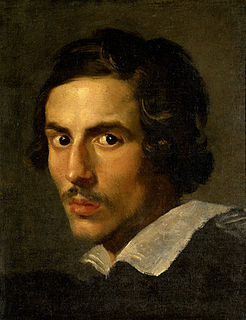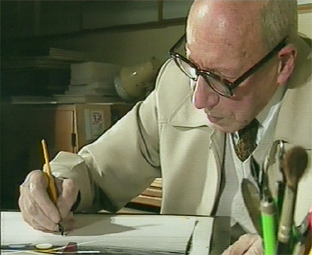A Quote by Gian Lorenzo Bernini
There are two devices which can help the sculptor to judge his work: one is not to see it for a while. The other... is to look at his work through spectacles which will change its color and magnify or diminish it, so as to disguise it somehow to his eye, and make it look as though it were the work of another.
Related Quotes
The Plagiarism of orators is the art, or an ingenious and easy mode, which some adroitly employ to change, or disguise, all sorts of speeches of their own composition, or that of other authors, for their pleasure, or their utility; in such a manner that it becomes impossible even for the author himself to recognise his own work, his own genius, and his own style, so skilfully shall the whole be disguised.
Have I then no work to work in this great matter of my pardon? None. What work canst thou work? What work of thine can buy forgiveness or make thee fit for the Divine favour? What work has God bidden thee work in order to obtain salvation? None. His Word is very plain and easy to be understood, "To him that worketh not, but believeth in Him that justifieth the ungodly, his faith is counted for righteousness" (Rom. 4:5). There is but one work by which a man can be saved. That work is not thine, but the work of the Son of God. That work is finished.
Look - I'm an African-American. I'm black. But I'm just looking at the character and trying to find his soul, his energy. If you can wipe away the blanket of skin and flesh that people tend to see, and look inside for the essence of the soul, then that's the work I'm doing. That's the work I always do.
The master in the art of living makes little distinction between his work and his play, his labor and his leisure, his mind and his body, his information and his recreation, his love and his religion. He hardly knows which is which. He simply pursues his vision of excellence at whatever he does, leaving others to decide whether he is working or playing. To him he's always doing both.
Progressively saved by the machine from the anxieties that bound his hands and mind to material toil, relieved of a large part of his work and compelled to an ever-increasing speed of action by the devices which his intelligence cannot help ceaselessly creating and perfecting, man is about to find himself abruptly plunged into idleness.
No man is happier than he who loves and fulfills that particular work for the world which falls to his share. Even though the full understanding of his work, and of its ultimate value, may not be present with him; if he but love it--always assuming that his conscience approves--it brings an abounding satisfaction.
There should be a law that no ordinary newspaper should be allowed to write about art. The harm they do by their foolish and random writing it would be impossible to overestimate--not to the artist but to the public.... Without them we would judge a man simply by his work; but at present the newspapers are trying hard to induce the public to judge a sculptor, for instance, never by his statues but by the way he treats his wife; a painter by the amount of his income and a poet by the colour of his necktie.
But who does not see that the work goes beyond the one who created it? It marches before him and he will never again be able to catch up with it, it soon leaves his orbit, it will soon belong to another, since he, more quickly than his work, changes and becomes deformed, since before his work dies, he dies.
Those circumstances, which to the dim eye of Jacob's faith wore a hue so somber, were at that very moment developing and perfecting the events which were to shed around the evening of his life the halo of a glorious and cloudless sunset. All things were working together for his good! And so, troubled soul, the "much tribulation" will soon be over, and as you enter the "kingdom of God" you shall then see, no longer "through a glass darkly" but in the unshadowed sunlight of the Divine presence, that "all things" did "work together" for your personal and eternal good.
He wore a sprinkling of powder upon his head, as if to make himself look benevolent; but if that were his purpose, he would perhaps have done better to powder his countenance also, for there was something in its very wrinkles, and in his cold restless eye, which seemed to tell of cunning that would announce itself in spite of him.
It is a fearful thing to hate whom God hath loved. To look upon another-his weaknesses, his sins, his faults, his defects is to look upon one who is suffering. He is suffering from negative passions, from the same sinful human corruption from which you yourself suffer. This is very important: do not look upon him with judgmental eyes of comparison, noting the sins you assume you'd never commit. Rather, see him as a fellow sufferer, a fellow human being who is in need of the very healing of which you are in need. Help him, love him, pray for him do unto him as you would have him do unto you.








































